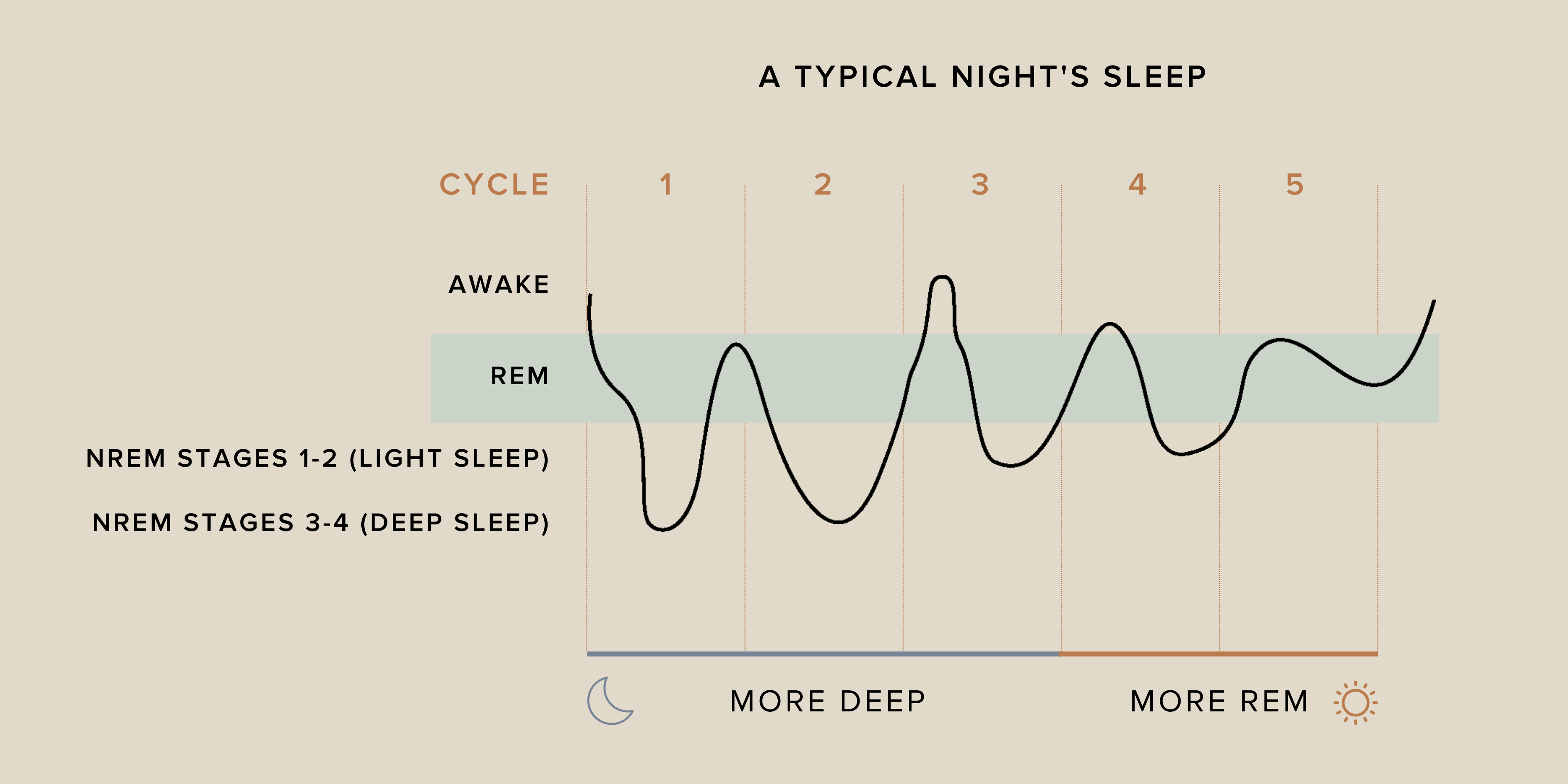How To Improve Your Sleep
Sep 16, 2022
Do you fall asleep quickly and bounce out of bed?
Are you someone who struggles to sleep... and even when you do - you wake up feeling exhausted?
If you chose the latter, you're not alone.
Studies show that 1 in 3 Australian adults don’t get enough sleep.
Did you know?
- If you haven’t slept in a 20-hour period, you are as cognitively impaired as if you were drunk.
- If you sleep less than 6.5 hours a night, you consolidate 40% less memories!
- If you are sleeping fewer than five hours a night, you are 300 percent more likely to catch a cold.
The Science Behind Sleep
There are two key things that contribute to our ability to sleep. Homeostatic sleep drive and circadian rhythm.
Our homeostatic sleep drive is the build up of a chemical called adenosine on the brain. This is what makes your eyes feel heavy and your brain and body get ready for sleep. Whilst we can fight off this process with caffeine, ultimately when the caffeine wears off you will feel twice as exhausted.
Our circadian rhythm is our 24-hour sleep-wake cycle that is genetically programmed and controlled by sunlight entering our eyes. Signals are sent to the retina in the eye which are then sent to the pineal gland in our brain which is told to suppress melatonin. Melatonin is a hormone that your brain produces in response to darkness, helping your internal clock and sleep cycle. You can only imagine what scrolling on your phone at night is doing to your natural melatonin production.
When your homeostatic sleep drive and circadian rhythm are in sync, you cycle through the 5 stages of sleep in about 90-minute intervals.

Stages 1-4, known as NREM (Non Rapid Eye Movement) is where your body begins to repair itself, and your brain starts to process information from the day and consolidate memories.
Stage 5 is where the magic happens. This is where your eyes dart from side to side and up and down - REM sleep (Rapid Eye Movement Sleep). This is the stage where the majority of your dreams occur, where you gain a deeper understanding of the world around you, develop problem-solving skills and a greater emotional intelligence.
3 Sleep Disruption Triggers to Avoid and What to do Instead
1. Switch Off
Ever felt so exhausted in the morning, you can barely bring yourself to leave bed, however that night you feel wide awake again whilst scrolling social media? This is because the light emitted from your phone is tricking you into thinking it’s day time!
When you look at a screen at night, you are decreasing the production of melatonin, the hormone that controls your sleep-wake cycle (circadian rhythm). This is what makes it more difficult to fall asleep, and then even harder to wake up in the morning.
The National Sleep Foundation recommends that you should stop using electronic devices at least 30 minutes prior to sleep. If you really want to improve your sleep, turn off those devices 60-90 minutes before bed.
Try this: Remove electronic devices from the bedroom, including laptops, TVs and phones. If you need your phone as an alarm, switch it to airplane mode to ensure notifications do not come through whilst you’re sleeping.
Swap scrolling for this: Talk to your partner, do the laundry, read a book or try a deep sleep relaxing meditation.
Use this Meditation to drift into a deep sleep
2. Decrease Your Caffeine Intake
I love a morning coffee, however I know all too well how much caffeine can disrupt the quality of your sleep when you drink too much of it, or drink it too late in the day.
Here’s the problem: It blocks the adenosine receptors on your brain, meaning it doesn’t give you more energy, it just temporarily stops the signals to let you know how tired you really are. Eventually the caffeine will wear off and you’ll experience a crash, that’s when your liver is finally metabolising the caffeine and built up adenosine comes rushing through.
Studies show it takes caffeine between 4-8 hours to leave your system. Whilst you may be someone who can have a coffee at 5pm and fall asleep fine, this doesn’t mean your brain is doing the deep repair work needed!
Try this: Don’t drink caffeine past noon, this includes caffeinated energy drinks, coffee and black tea.
3. Lower Your Alcohol Consumption
Unlike caffeine that is a central nervous system stimulant, alcohol is a central nervous system depressant and definitely does not promote natural sleep.
While it may induce sleep and knock you out quickly, your body is working twice as hard to detoxify itself. Research shows that two or more alcoholic drinks impairs your ability to reach the REM sleep stage and leave you with rebound insomnia, meaning you’ll continue to wake up to get water, pee or stress about something you said or did that night!
Try this: Have 4 or more alcohol free nights a week. When you do drink try to consume no more than 2 standard drinks and have them at least three hours before going to bed.
Sleep is your body’s natural repair and recharge mechanism that improves both your physical and mental health. You can have the right mindset and clear goals but if you don’t have sleep, you can’t transform those habits into success.

